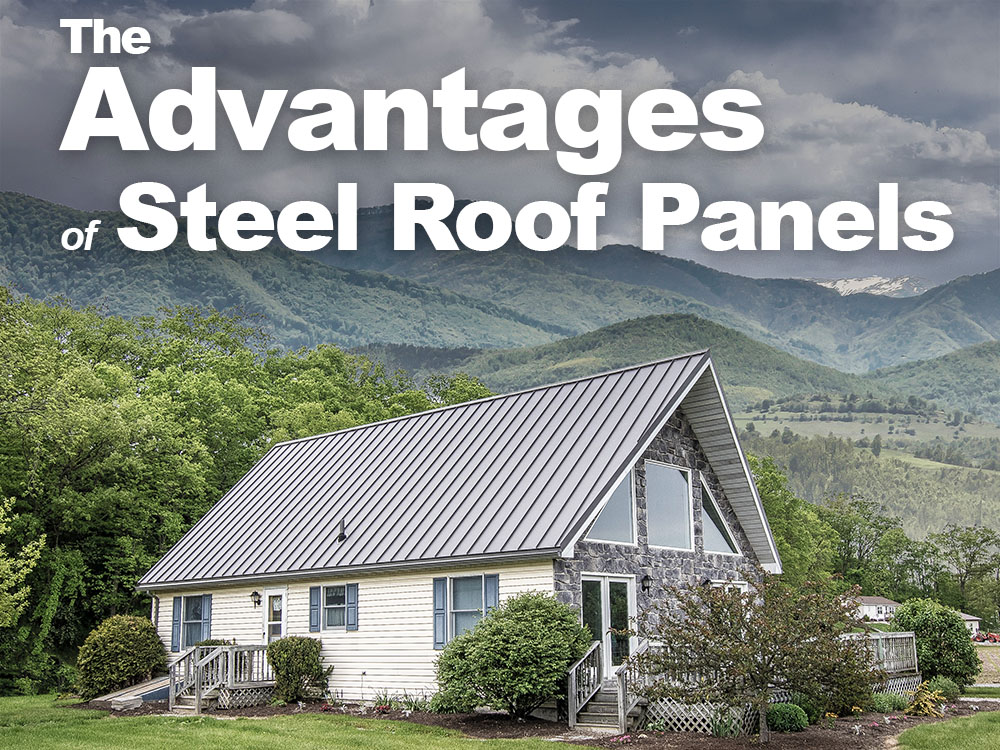Benefits of Metal Roofing
Metal roofing has gained significant popularity in recent years due to its numerous benefits. In this article, we will explore the advantages of metal roofs and why they are a great choice for homeowners.
Longevity and Durability
Metal roofs are known for their exceptional longevity and durability. Unlike traditional asphalt shingles that may need replacement every 15-20 years, metal roofs can last up to 50 years or more with proper maintenance. They are resistant to cracking, shrinking, and eroding, making them highly durable even in harsh weather conditions.
Energy Efficiency
Metal roofs are excellent at reflecting solar heat, which helps to reduce cooling costs during hot summer months. This energy efficiency can lead to significant savings on your energy bills. Additionally, metal roofs are often made from recycled materials, making them an environmentally friendly choice.
Fire Resistance
One of the most significant advantages of metal roofs is their fire resistance. Unlike traditional roofing materials, metal roofs are non-combustible, providing an extra layer of protection to your home. This fire resistance can give homeowners peace of mind, especially in areas prone to wildfires.
Low Maintenance
Metal roofs require minimal maintenance compared to other roofing materials. They are resistant to mold, mildew, and insect damage, reducing the need for frequent repairs. Periodic inspections and simple cleaning are usually sufficient to keep a metal roof in excellent condition.
Enhanced Curb Appeal
With their sleek and modern appearance, metal roofs can significantly enhance the curb appeal of any home. They come in a variety of styles, colors, and finishes, allowing homeowners to choose a design that complements their architectural style. Whether your home has a contemporary or traditional look, there is a metal roof option that will enhance its overall aesthetic.
Lightweight
Metal roofs are lightweight compared to other roofing materials. This characteristic makes them easier to install and puts less stress on the structure of your home. The lightweight nature of metal roofs also allows for easier renovations or additions in the future.
Weather Resistance
Metal roofs are highly resistant to extreme weather conditions such as heavy rain, strong winds, and hailstorms. They have excellent water-shedding capabilities, preventing water from seeping into your home. Metal roofs are also designed to withstand high winds, making them a reliable choice in hurricane-prone areas.
Cost-Effective
While the initial cost of installing a metal roof may be higher than other roofing materials, the long-term cost-effectiveness of metal roofs cannot be overlooked. With their longevity and low maintenance requirements, metal roofs can save homeowners money in the long run. Additionally, metal roofs can increase the resale value of a home, making them a wise investment.

Metal roofs offer a multitude of benefits, including longevity, durability, energy efficiency, fire resistance, low maintenance, enhanced curb appeal, lightweight construction, weather resistance, and cost-effectiveness. Their exceptional qualities make them an excellent choice for homeowners looking for a long-lasting and reliable roofing solution. Consider the numerous advantages of metal roofs when making your next roofing decision.
Frequently Asked Questions about the Benefits of Metal Roofs
1. What are the advantages of installing a metal roof?
There are several benefits to choosing a metal roof for your home or building. Metal roofs are highly durable, long-lasting, fire-resistant, energy-efficient, and environmentally friendly.
2. How long does a metal roof typically last?
Metal roofs have an impressive lifespan and can last anywhere between 40 to 70 years, depending on the type of metal used and proper maintenance.
3. Are metal roofs more expensive than traditional asphalt shingles?
While the initial cost of installing a metal roof may be higher than asphalt shingles, the long-term cost-effectiveness of metal roofs outweighs the initial investment. Metal roofs require less maintenance and have a longer lifespan, making them a cost-effective choice in the long run.
4. Do metal roofs require a lot of maintenance?
No, metal roofs are relatively low maintenance. They are resistant to cracking, shrinking, and eroding, and do not require frequent repairs or replacements. Periodic inspections and basic maintenance, such as clearing debris and checking for loose fasteners, are usually sufficient.
5. Are metal roofs noisy during rain or hailstorms?
No, metal roofs are not significantly louder than other roofing materials during rain or hailstorms. When properly installed with an underlayment, insulation, and attic space, metal roofs can be quieter than traditional roofs.
6. Are metal roofs energy-efficient?
Yes, metal roofs are highly energy-efficient. They reflect solar heat, reducing cooling costs in hot climates. Additionally, some metal roofs are designed with insulation layers that improve energy efficiency and reduce heat transfer.
7. Can a metal roof increase the resale value of my home?
Absolutely! Metal roofs are considered a desirable feature by homebuyers due to their durability and longevity. Installing a metal roof can increase the resale value of your home and make it more attractive to potential buyers.
8. Are metal roofs fire-resistant?
Yes, metal roofs are highly fire-resistant. Unlike traditional roofing materials such as wood or asphalt shingles, metal roofs do not ignite or contribute to the spread of fire. This can provide added safety and peace of mind.
9. Can I install solar panels on a metal roof?
Absolutely! Metal roofs are an excellent choice for installing solar panels. They provide a sturdy and secure base for solar panel installation, and the reflective surface of the metal can enhance the efficiency of the solar panels.
10. Are metal roofs environmentally friendly?
Yes, metal roofs are considered environmentally friendly. They are often made from recycled materials and are fully recyclable at the end of their lifespan. Metal roofs can also help reduce energy consumption and lower carbon emissions due to their energy-efficient properties.




